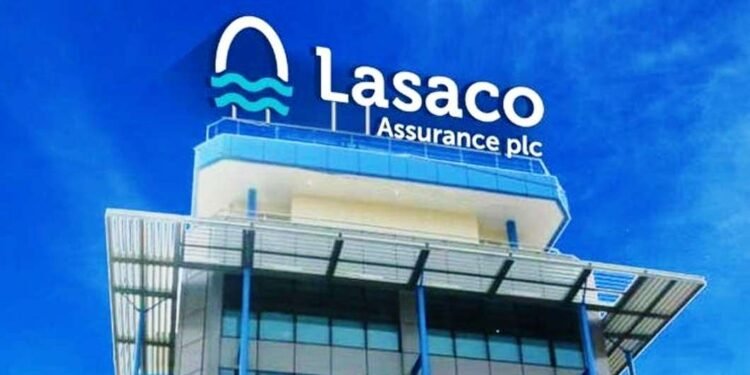It has been a long wait for Shareholders and Market watchers for the full year period ended 31st March, 2020 Financial Statements of Lasaco Assurance Plc (NSE Ticker: LASACO). The composite insurer earlier today released the report to the Nigerian Stock Exchange and the investing public.
LASACO had released several statements on the NSE explaining the reason for the delay in the submission of the financial statements. The last of these on 6th July stated that “the Company is still awaiting the approval of its 2019 Financial Statements by the National Insurance Commission (NAICOM).”
So, how well did the management of the company perform in financial terms for shareholders? The most important takeaway from the result is the Directors’ proposal to pay shareholders a dividend of 5 kobo per share for the year ended 31 December 2019.
This will be the fourth straight year of dividend payout by the company as it strives to join the league of consistent dividend paying companies on the exchange. The dividend has been increasing progressively over the last four financial years as well; 3 kobo for 2016 financial year, 4 kobo for 2017 financial year, 5 kobo for 2018 financial year, and now a recommendation of 5 kobo for the 2019 financial year.
- Read also; Unemployment Rate continues to rise in Nigeria even as Labour Force declines
- Nigeria oil production declined to 1.373 million bpd in July – OPEC report
The dividend in itself is very impressive at this time of depressed yields across most financial market instruments. At the closing price of 26 kobo at the end of trading today on the floor of the NSE, a 5 kobo dividend will return a dividend yield of 19.23%, before the deduction of 10% withholding tax.
The Income Statement Analysis
Take away the dividend, it was not a rosy result for the shareholders to digest. A pressing question is; how does the company pay for the generous dividend.
To pay 5 kobo dividend for 7.3 billion units of ordinary shares held by investors, the company will spend N366.17 million. The problem here is that the company only made N315.74 million Profit for the year after tax, giving a 4 kobo Earnings per Share (EPS).
The company will transfer N167.54 million to its statutory contingency reserve, thus leaving only N146.20 million transferrable to retained earning for the year, and which can be deployed to pay dividends. The company will have to dig deep into its retained earnings from previous years to make up the balance and pay the dividend to Shareholders.
A statutory contingency reserve is credited with the greater of 3% of total premiums or 20% of profits for general business and 1% of total premiums or 10% of profits for life business. In accordance with the Insurance Act, this shall accumulate until it reaches the amount of greater of minimum paid-up capital or 50% of net premium.
Although LASACO posted a 57% decline in Profit for the year; N315.74 million, which is N420.53 million lower than the N736.27 million recorded in 2018, the insurer was able to grow its Gross premium written by 4% (2019: N9.341 billion, 2018: N9.014 billion).
It’s underwriting profit also increased by 8%, from N2.121 billion in 2018 to N2.298 billion in 2019. The recorded decline in Profit can be attributed to a 1185% increase in fair value losses, and a 27% increase in Management expenses, combined together took away N775 million from the underwriting profit.
The increment recorded in management expenses came from new items on the income statement; Authorized share capital expenses and insurance levy and also from an increase in the employee benefit expenses.
A further analysis of the income statement shows that for the 2019 financial year, the company has the following ratios;
- 3.79% return on average Equity, significantly lower than industry average.
- 1.78% return on average Asset; significantly lower than industry average.
- 12 months trailing Price to Earnings (P/E) ratio of 6.03x; higher than industry average.
- Book Value per share: N1.12
- Price to Book Value: 1.12
The Statement of Financial Position Analysis
A review of the company’s balance sheet shows that there was no significant movement in terms of all three component on the balance sheet. Total Assets increased by 9%, from N17.052 billion to N18.510 billion. Total liabilities increased by 21%, from N8.568 billion to N10.336 billion, while the Shareholders’ Finds decreased by 4%, from N8.483 billion to N8.173 billion.
The increase in total assets came primarily from an increment in the Cash and cash equivalents as at 31 December 2019. Insurance contract liabilities and the retirement benefits obligations pushed up the total liabilities.
A decrease in retained earnings, owing to the deduction of dividend for shareholders contributed to the decline of the Shareholders’ fund.
LASACO’s Shareholders’ fund finances 44.16% of its Asset as at 31 December 2019, a percentage better than the industry average. Its current ratio at 1.79 is also on par with the Industry average.
Statement of Cash Flow Analysis
There is every reason for Shareholders to be happy with their company’s cash flow. It was able to increase its cash and cash equivalents at the year end by N1.308 billion, a 43% increase from N3.047 billion at the end of 2018 to N4.355 billion at the end of 2019.
The cash generated or used for each activity is as follow;
- Net cash generated from operating activities: N1.489 billion (N3.017 billion used at the end of 2018.)
- Net cash inflow from investing activities: N185.293 million (outflow of N467.071 million at the end of 2018.)
- Net cash outflow from financial activities: N366.865 million (outflow of N293.374 million at the end of 2018).

LASACO like every other composite insurance company in Nigeria have a herculean task of increasing its Minimum Paid-up capital from N5.0 billion to N18.0 billion. The company as at the 31 December 2019 do not have sufficient paid up capital (Share capital: N3.667 billion and Share premium: N0.940 billion) nor Shareholders’ fund (N8.173 billion) to meet its recapitalization needs.
At the Annual General meeting of the company convened and held on Tuesday 8th October, 2019, Shareholders passed the following resolutions in pursuant of the company’s re-capitalization needs;
- Authorized the Directors subject to the approval of the relevant regulatory authorities to raise additional capital through the issuance of up to 9,250,000,000 ordinary shares of N0.50k each at N1.20k per share by way of Special/private placement.
- The shares to be issues pursuant to the above resolution and the rights attaching thereto shall rank parri passu with ordinary shares held by the existing members of the Company.
- The sum of N2.749 billion representing the surplus nominal value of the reconstructed shares be transferred into the Share Reserve Account and form part of the Shareholders Funds of the Company.
- That the reconstructed 1,833,586,000 ordinary shares of 50k each, be revalued in accordance with the ratio of reconstruction, subject to appropriate regulatory consent and be listed on the Nigerian Stock Exchange.
- Authorized the Directors to exercise all the powers of the company to modify and or conclude the terms of the Special/Private Placement.
With the arrangement put in place and already approved by the Shareholders, LASACO is well on course to achieve the N18.00 billion recapitalization of the company.
About the Company
The company was incorporated in December 20, 1979 under the Company Decree of 1968. The Company then, known as Lagos State Assurance Company Limited obtained license as an insurer on July 7, 1980 and commenced business on August 1, 1980. It became a public liability Company n 1991 when the Company’s shares were listed on the Nigerian Stock Exchange.
The company effected a change of name to LASACO Assurance Plc in July 1988 following the promulgation of, and its compliance with, the provisions of the privatization and commercialization decree No. 25 of 1988.
LASACO Life Company Limited and LASACO Assurance Plc were merged in 2014, thus making the company a composite insurance company. The company operates from its corporate office in Lagos whilst it maintains branches in major cities of the Federation.
The Company is principally engaged in the provision of various classes of insurance such as general accident, fire, motor, engineering, marine, bond insurances and life assurance businesses. The Company also transacts insurance business for aviation, oil & gas and other special skills.
Analyst’s view @ Investogist
On a singular reason of the company’s current dividend payment history and ambition, Analysts’ at Investogist rates the stock a BUY.
The stock is poised to make handsome returns to Shareholders in the long run, both in dividend and capital gains (provided the company can pull off its recapitalization plans).
Written by;
Nnamdi M.






















































